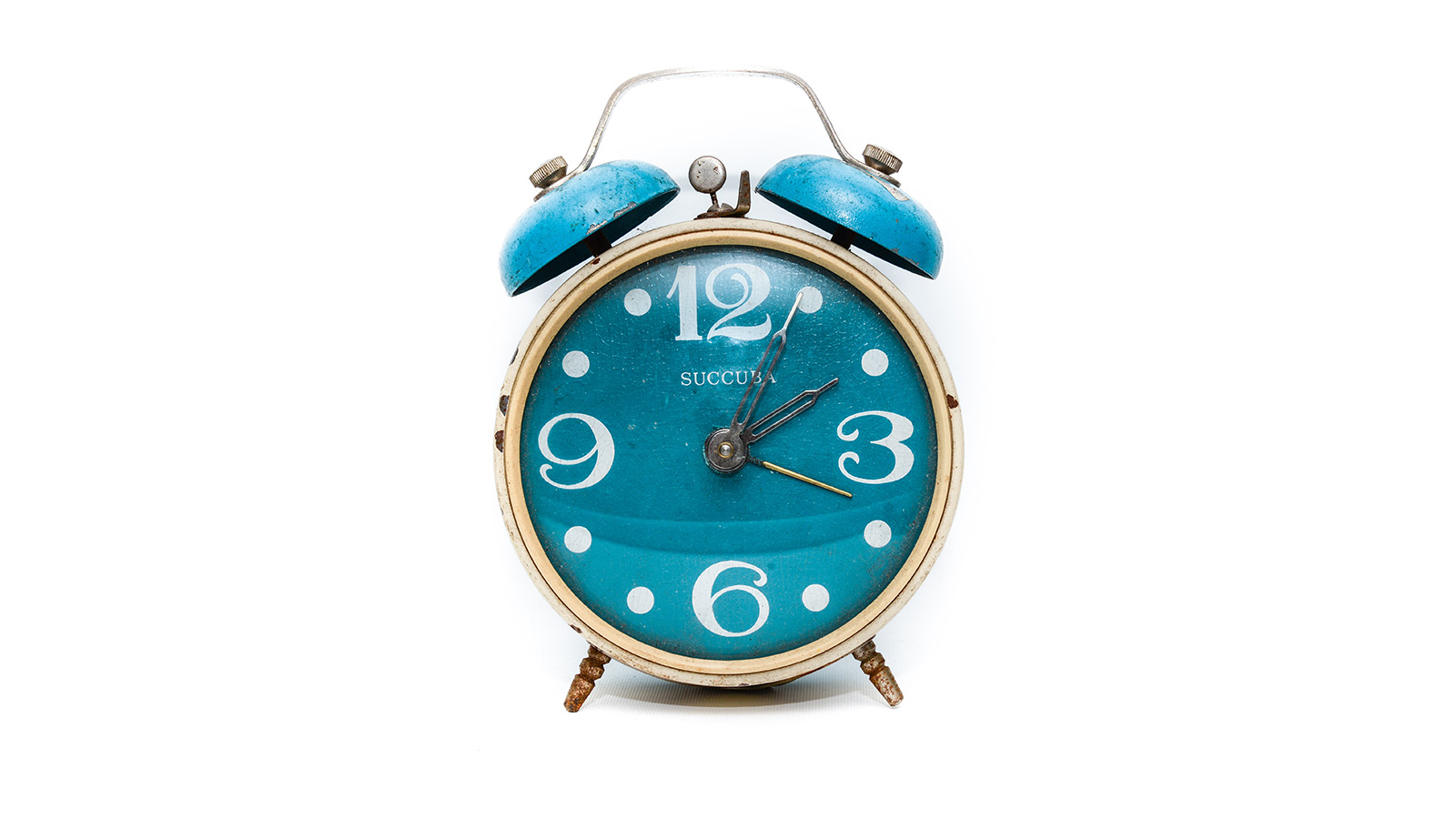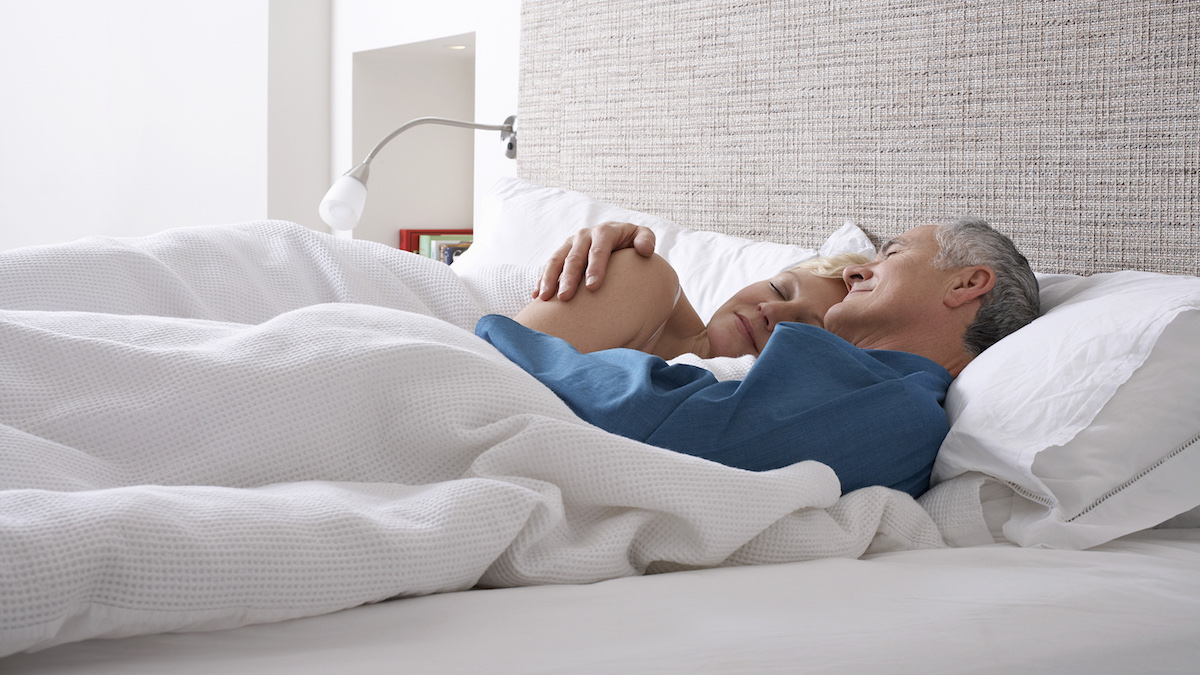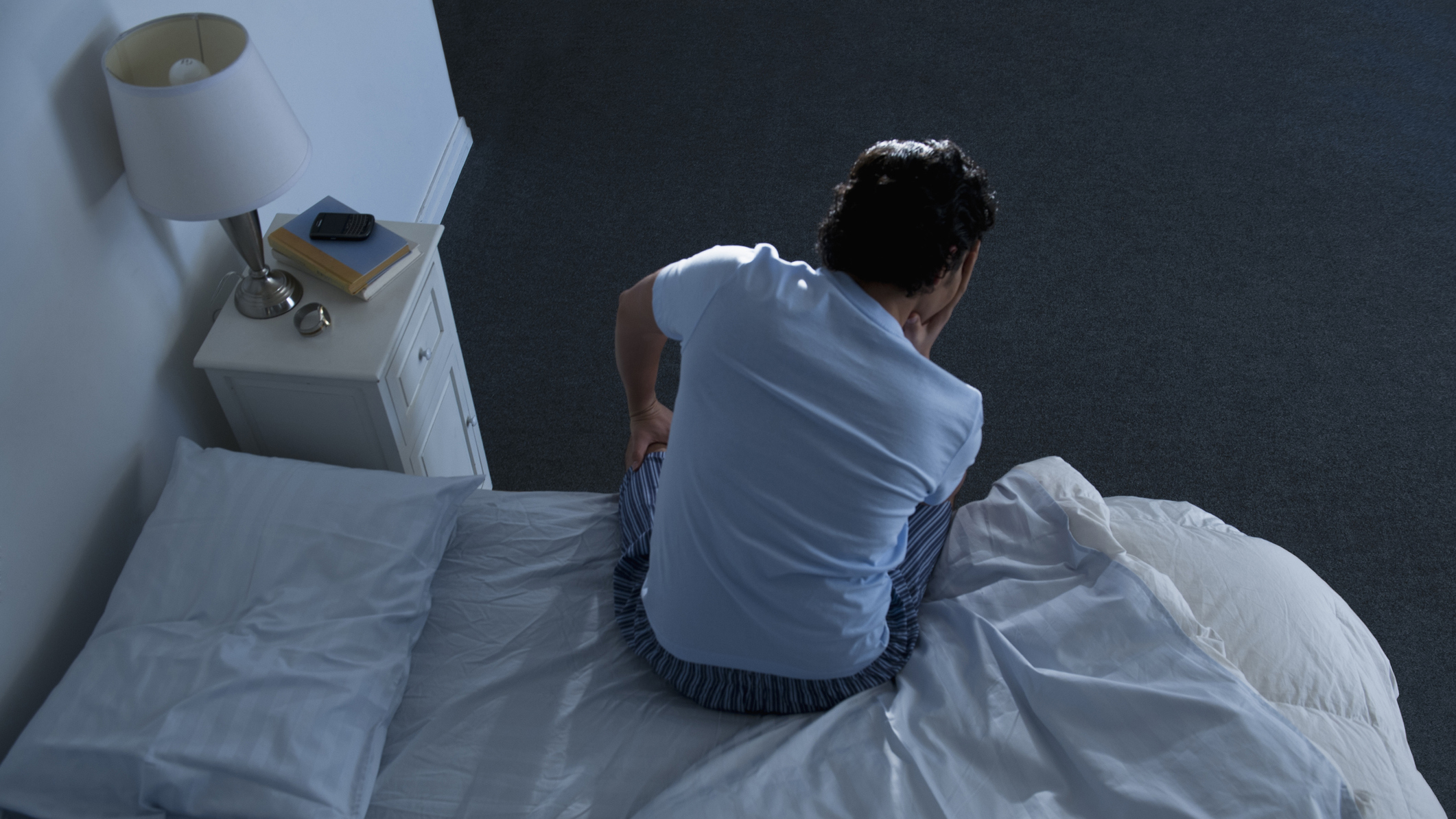Many of us wish we could sleep for longer and stop waking up so often – whether that’s because every little sound disturbs you, nature calls, or something else is to blame. Waking in the night is common, and most people wake briefly when one sleep cycle ends, yet they might not remember being awake before falling asleep again.
A 2016 study showed how sleep continuity is a good indicator of your overall quality of sleep, so if you're waking frequently and for long periods, speak to your doctor to see what could be causing it.
So the question of how to sleep for longer at night depends on your on age, health, and what’s happening in your bedroom. One sleep expert-recommend approach is to practice good sleep hygiene, which includes going to bed at the same time each night, even on weekends.
Keeping your bedroom clutter free, quiet and dark at night can also help you fall asleep easier - and stay asleep for longer. Being comfy in bed also helps you feel more cozy, relaxed and ready to drift off.

How to sleep for longer at night: 8 tips to try
1. Avoid caffeine
You don’t need to cut caffeine out completely, but experts suggest limiting your caffeine intake to the morning is a good idea for restful sleep. It’s also a good idea to limit alcohol intake to just one drink too, as more than that can disrupt your sleep.
2. Exercise often
Regular exercise is great for all aspects of your mental and physical wellbeing. It can also help you to sleep for longer without interruption and enables most people to get a better quality of sleep too. However, avoid any intense workouts late at night as these can make you feel alert rather than snoozy.
3. Keep a regular sleep schedule
Sleep advice that comes up time and time again is to stick to a regular sleep schedule, which means getting to sleep and waking up at similar times most days – even on weekends. This enables your body to get into a sleep routine, where it knows when it's bedtime and when it's time to get up and seize the day
4. Create a relaxing bedtime routine
Everyone’s ideal bedtime routine will be a little different, but we recommend dim or warm-hued lighting, taking a bath with relaxing essentials oils (lavender is good) and reading a book rather than staring at a screen. That said, if playing a game of sudoku on your phone relaxes you before sleep, just switch your device to night mode. We discuss bedtime routines more in our feature on why is sleep important.

5. Get up if you can’t sleep
If you can’t sleep, rest is still important. If you feel like you’re able to lay calmly, stay in bed for a little longer. But if you’re irritated by your lack of sleep, or if it is making you anxious, go into a different room. Keep the lights dim and try reading a book or doing some light stretching. By leaving your bed when you’re unable to sleep, you’ll avoid creating a negative association between your bed and not sleeping.
6. Ask your doctor about your medication
Some medications disturb sleep, while others make you sleep for longer. If you take medication that you think might be affecting your sleep, ask your doctor if taking it at a different time of the day could help. Taking it in the morning instead of the evening could be beneficial if you suspect your medication is stimulating you in the evenings, but check with your doctor before making changes.
7. Don’t obsess over numbers
We all like the idea of having more sleep, but it could be that the seven or eight hours you’re getting most nights are perfect for you, so you don’t need to sleep longer. Obsessing about how much sleep you get each night can actually make your sleep worse.
8. Consider what you’re sleeping on
Your bed can impact how well you sleep and for how long. Generally speaking, mattresses have a longer life span of around eight years on average. If your bed has seen better days, check out our best mattress online guide, and make sure you grab a decent pillow for sleeping too.
A good bed topper can tide you over if you don’t have the budget to upgrade, yet you think your current bed is too firm or too soft to support you during sleep. Investing in airy bedding is worth it too, as breathable sheets keep you cool as you snooze, stopping you from waking up because you're too warm.

Is sleeping longer the key to a good night’s sleep?
There are many ways to get a better night’s sleep, including heading to bed early if that’s the time you naturally feel yourself nodding off on the couch. But it’s not all about sleeping longer. Good quality sleep, in which you properly rest, is just as important as clocking up the hours.
Many of the top tips for sleeping well, such as keeping a regular sleep schedule and avoiding looking at screens in bed, will help you sleep for longer at night and get a better quality of shut-eye.
Try to relax though, as clock watching and becoming preoccupied with sleeping for longer can stop your brain from switching off (so you'll have a harder time sleeping).
Sleeping well on a regular basis is important, as according to the National Institute on Aging, “An ongoing lack of sleep or poor-quality sleep increases your risk of health problems such as cardiovascular disease, high blood pressure, diabetes, depression and obesity.”
Does our sleep cycle change as we get older?
As we age, much about our health and bodies changes, including how much sleep we need and are able to get without interruption. As people get older they can sometimes – but not always – feel refreshed on a little less sleep. That’s fine, but getting a good night’s sleep is still vital to mental and physical wellbeing regardless of a person’s age.

When publishing advice on how to sleep through the night, the Division of Sleep Medicine at Harvard Medical School explained that one of the biggest differences is that our sleep cycles change as we get older, and people spend more time in the lighter stages of sleep. Lighter sleep also means you might wake up more easily to sounds or temperature changes in your bedroom.
"Research has shown that your sleep needs stay constant throughout adulthood," explained Dr. Lawrence Epstein, Associate Physician with the Division of Sleep and Circadian Disorders at Brigham and Women's Hospital. "Instead, it's your sleep patterns that change, and that is what can interfere with sleep quality."
Is it possible to sleep through the night without waking?
Some people tend to wake up during the night more often than others and take a while to fall back asleep again, while others wake up briefly between sleep cycles then fall asleep quickly. If you are frequently waking during sleep and find it difficult to go back to sleep quickly, it’s time to speak to your doctor.
Frequent waking during the night could be a sign of underlying health conditions including sleep apnea and depression. It could also be a side effect from taking certain medications or from drinking too much caffeine throughout the day. In fact, Sleep Education tells us that caffeine has a half-life of up to five hours, so that late afternoon cappuccino could be the culprit behind your disturbed snooze.

To sleep for longer at night, limit your water intake before you go to bed to avoid a full bladder, give caffeine after midday a large swerve, and ease yourself into a frame of mind more ready for sleep by adopting a relaxing bedtime routine. This could include firing up a meditation app, doing some deep breathing exercises or yoga nidra before bed, or soothing tense muscles with a handheld massager.
How much sleep is too much – is 9, 10 or 12 hours too much?
The CDC tells us that different age groups require different amounts of sleep. Most adults tend to need around seven to nine hours sleep. Sometimes people sleep more if they’re pregnant, unwell or taking certain types of medication. But if adults regularly sleep too much it can also lead to health problems, including headaches and heart disease.
If you oversleep occasionally, there’s nothing to worry about. But regular oversleeping could be the sign of an underlying health condition, such as depression. If you often find yourself sleeping for longer than the recommended amount for your age range, you should see a doctor.
There are various brands running Sleep Week sales. To see how much you could save, check out our roundups of the best Purple mattress deals and discounts, the latest Casper mattress deals, and the best Saatva mattress discounts. To get you started, we’ve also included the latest prices on some popular brands below.

